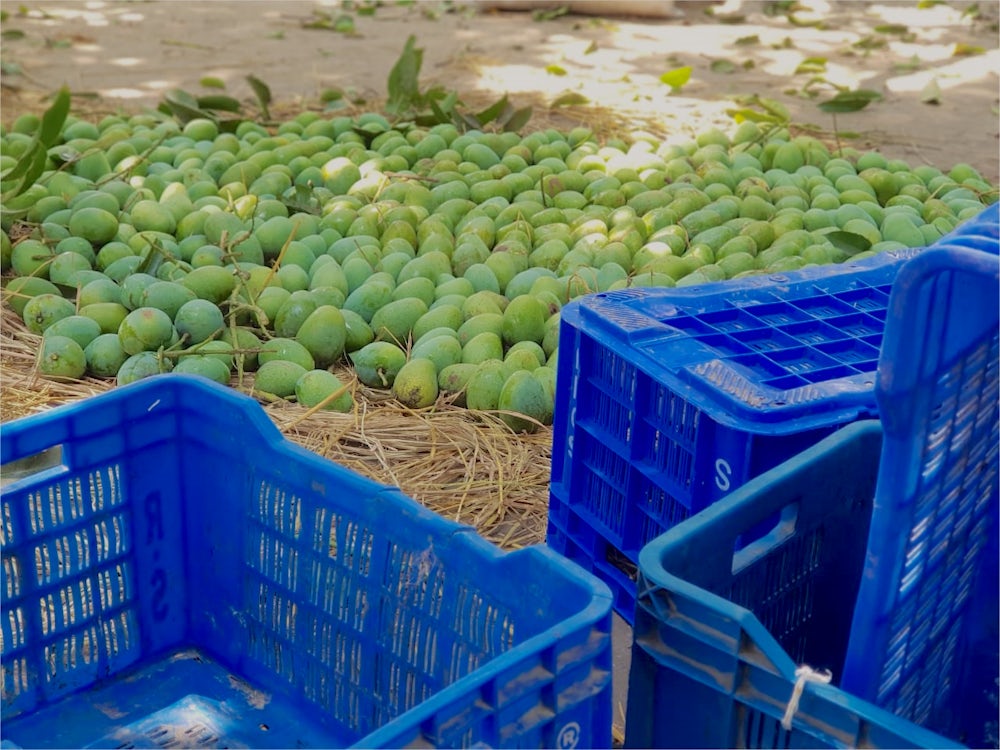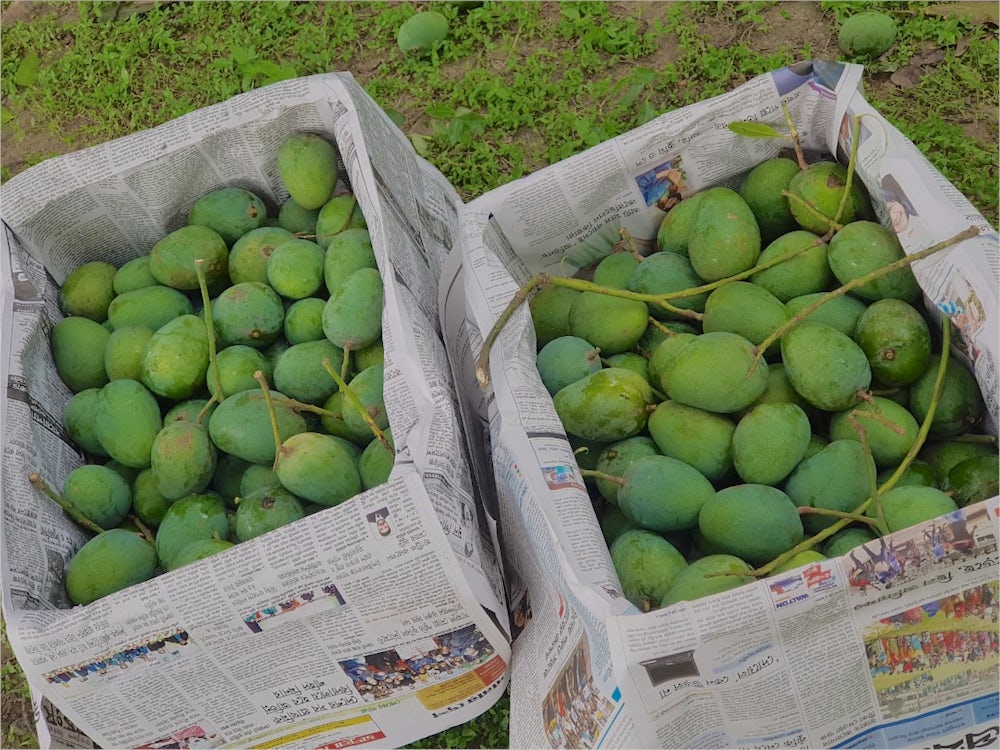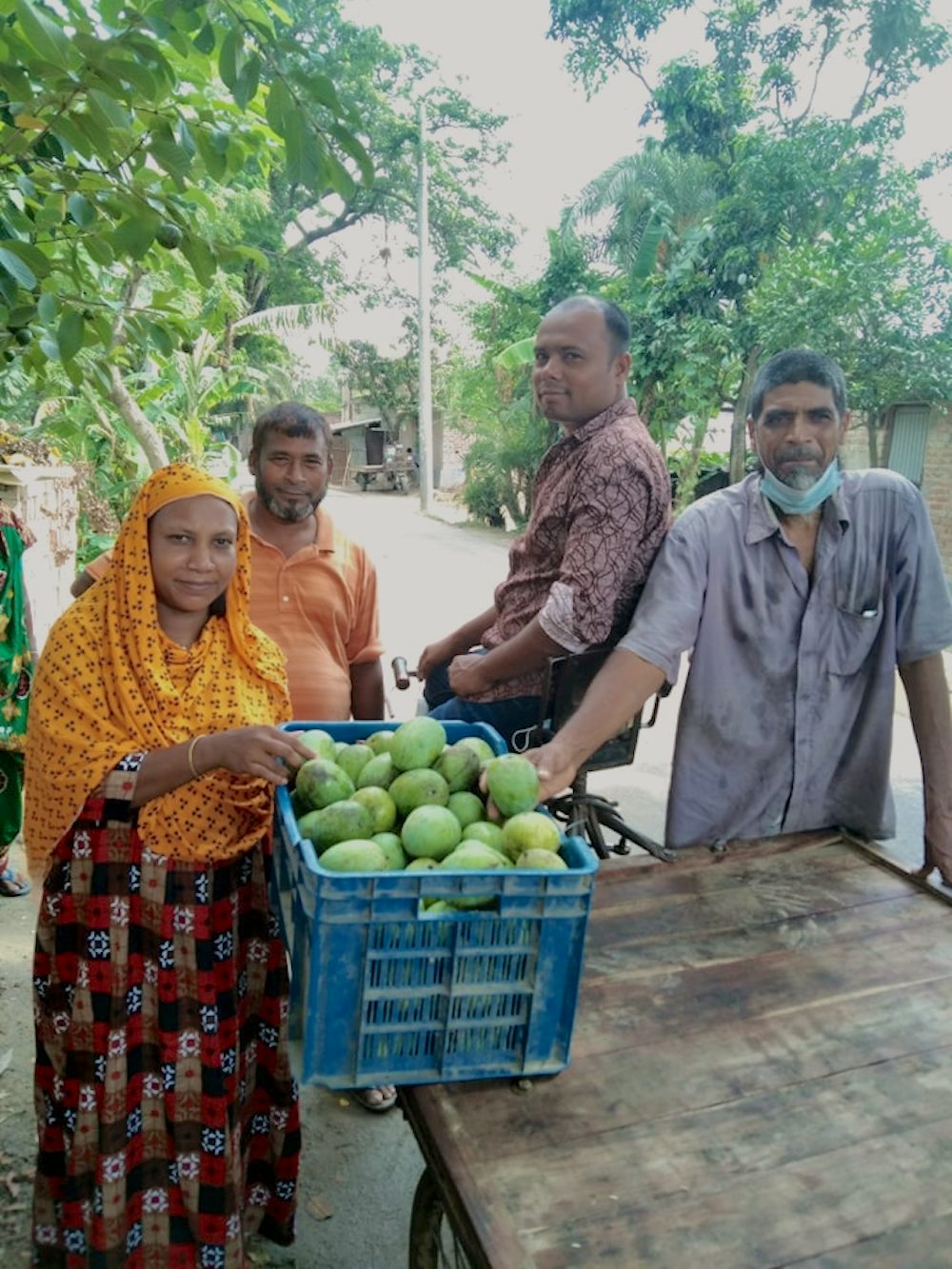In the Rajshahi district of Bangladesh, the members of Akota Women’s Cooperative are bound together through the emphasis they place on increasing each other's income. Established in 2015, the group of 359 women work together in agribusinesses, including producing and selling mangoes, to earn more money and build more stable lives. And it’s working.
“Each mango tree produces about 240 kilograms [about 529 pounds] of mangoes,” said Subrata Chowdhury, senior training manager for Heifer Bangladesh. With 42 mango orchards among them, the cooperative produces a lot of mangoes — hundreds of thousands of pounds on average.
But earlier this year, with COVID-19 cases on the rise and a lockdown in place, the market had halted entirely. As the peak of mango season approached in June and July, the cooperative was at risk of facing a huge loss without a physical market to sell their products.

Heifer Bangladesh started working with the group’s members in 2011, through a project that provided several years of training in chemical-free vegetable production and business development practices. After the training, participants were disseminated into five cooperatives to work together long term, Akota included.
In 2021, faced with closed markets due to COVID-19 and mango season around the corner, women of the Akota cooperative approached Heifer and its project partners with the idea of an online marketplace to sell its mangoes. The groups worked together to find a solution, which led to the creation of the Akota Cooperative Mango Hat Facebook Page.
With support from Heifer Bangladesh, the page launched May 23, 2021, before mango season was in full swing. This forward-thinking approach allowed Akota to leverage demand and manage its supply to avoid any losses.
Now run by project staff member Shakil Ahmed Safi, this innovative solution also simplifies the buying process, connecting Akota’s farmers directly to consumers for the first time. This eliminates the middleman and potential for their income to decrease as their products move through the value chain.
“Our cooperative members produce mango but can’t sell [it] at a fair price,” explained Arjia Begum, president of Akota cooperative. “Online-based mango marketing by Akota cooperative will help its members to sell their mango at a fair price. This new initiative will increase the income of cooperative members and the cooperative as well.”
Combining agribusiness, innovation and technology to make a one-stop shop for mangoes has been nothing short of success for the Akota cooperative; in just the first three weeks of the page being live, the cooperative sold 2,204 pounds of mangoes directly to consumers.
Before the Facebook page, mango farmers were limited to selling directly to individual buyers who would then sell to wholesalers for distribution to local markets, forcing the farmers to take the price offered for their products. The intermediaries in the value chain also took commission, which meant lower returns for producers. With the Facebook page, farmers are getting a fair price for their products. Buyers order through the Facebook page and pay the cooperative directly using a mobile app, such as Bkash or Nagad. Then, Akota members collect the mangoes from their orchards, package them and deliver the orders to customers through a courier. The price is fixed and includes the cost of transportation and packaging.

The Facebook page has become more than just selling products during the COVID crisis — it has allowed the cooperative to build its business and communicate directly with customers in real time. This includes updates on harvests, delivery times and prices, as well as what customers can expect in the coming weeks.
Combining agribusiness, innovation and technology to make a one-stop shop for mangoes has been nothing short of success for the Akota cooperative; in just the first three weeks of the page being live, the cooperative sold 2,204 pounds of mangoes directly to consumers.
Not only has this digital-marketing initiative raised the group’s overall income, but it has increased the profit of individual small- and large-scale farmers in the cooperative.
“With an investment of $125, smallholder farmers generated an average revenue of $500,” explained Chowdhury. “Large-scale farmers, with an investment of $850, generated a $4,000 revenue.” During the 2021 mango season, the cooperative aims to sell 11,023 pounds of mangoes at a fair price, which will further increase its revenue.
This increase in profit for the cooperative and its farmers has allowed them to expand their business model and increase their capital, as well as expand production of both products and services. With the support of Heifer Bangladesh, Akota has started communication with a government department, a large buyer and a mango exporter to sell a large volume of mangoes, and the cooperative aims to export quality mangoes abroad within the next two years.

Looking into the future, Akota also plans to buy land on which to build an aggregation center with the profits from the Facebook page. With infrastructure assistance from Heifer Bangladesh, the aggregation center will be the center of business activities for cooperative members, providing a place for the women to bring all their produce to sell to large buyers and traders.
And there’s more, yet. Because transportation of products reigns high in the group’s business model, it plans to dedicate 25% of its income to buy mini trucks to upscale its sales and ability to transport products, with the remaining 75% covered by Heifer Bangladesh.
“The cooperative is thankful to Heifer Bangladesh for providing constant support to explore new business opportunities,” said Begam.
